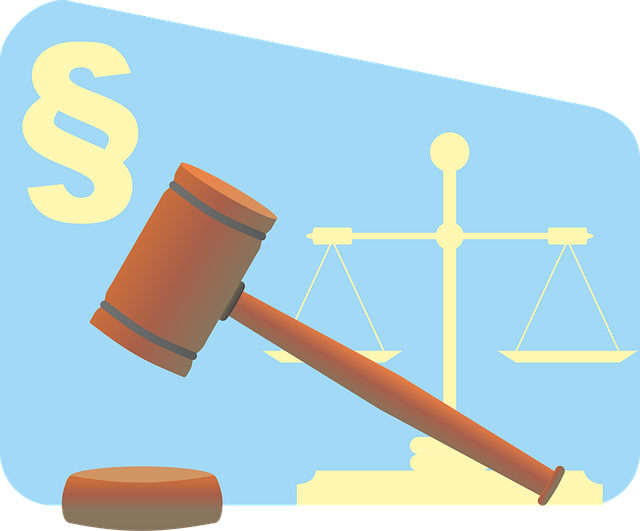Securities class action lawsuits protect investors from fraud, with complex financial issues often at play. Understanding common reasons for appeal denials – like inadequate disclosure, misrepresentations, or breaches of fiduciary duty – is crucial for all stakeholders. Legal experts guide clients through the process, ensuring compliance and strategic appeals. Key factors behind appeal denials include lack of standing, procedural errors, and deferential standards of review. Meticulous preparation, including document review and legal precedent study, strengthens cases in high-stakes securities litigation.
Securities Class Actions: Unraveling Complex Litigious Landscapes
In the intricate world of finance, disputes can arise, leading to securities class actions—a powerful tool for investors. This comprehensive guide aims to demystify these legal battles. We’ll explore common misconceptions, emphasizing the crucial role of legal experts in navigating complex cases. Furthermore, we delve into the top reasons behind appeal denials in securities disputes, offering insights to strengthen your case. From understanding the basics to strategic preparation, this article equips you with knowledge for a successful outcome.
- Understanding Securities Class Actions: A Comprehensive Overview
- Common Misconceptions About Securities Class Action Lawsuits
- The Role of Legal Experts in Navigating Complex Cases
- Uncovering the Top Reasons for Appeal Denial in Securities Disputes
- Strategies to Strengthen Your Case: Preparing for a Successful Outcome
Understanding Securities Class Actions: A Comprehensive Overview

Securities class actions are a type of legal proceeding designed to protect investors from fraud or misconduct in the financial markets. When a group of investors believes they have been wrongfully affected by a company’s actions, they can band together and file a lawsuit against the offending entity. This collective approach not only seeks justice for the aggrieved but also serves as a deterrent for future misconduct. Understanding securities class actions requires grasping their mechanisms and goals, as well as the potential outcomes for both plaintiffs and defendants.
While these cases often revolve around complex financial matters, some common reasons for appeal denials highlight their significance. Issues such as inadequate disclosure, misrepresentations in prospectuses, or breaches of fiduciary duty can lead to substantial settlements or winning challenging defense verdicts. For corporate and individual clients alike, a robust white collar defense strategy is crucial to navigating these complex legal landscapes. By examining the underlying causes of securities class action denials, investors, companies, and attorneys can better prepare for litigation, ensuring fair outcomes in what can be a tumultuous process.
Common Misconceptions About Securities Class Action Lawsuits

Many people have misconceptions about securities class action lawsuits, often misunderstanding the nature and outcomes of these legal proceedings. A common belief is that such cases always result in substantial payouts for plaintiffs. However, this isn’t entirely true; winning challenging defense verdicts can be a complex process. These lawsuits are typically initiated when a group of investors claims they’ve been misled by a company, leading to financial losses. While some settlements do result in significant monetary gains, many end with no compensation or even an order for the plaintiff to pay back costs.
Another prevalent misconception is that these cases automatically lead to indictment and criminal charges for corporate officers. In reality, securities class actions focus on civil liabilities, and avoiding indictment is a primary concern for both corporations and individual clients involved. The suits aim to hold companies accountable for their statements and actions, ensuring transparency and preventing future misconduct, rather than punitively prosecuting individuals. Understanding these nuances is crucial when considering whether to participate in or appeal a securities class-action lawsuit.
The Role of Legal Experts in Navigating Complex Cases

The role of legal experts is pivotal in navigating complex securities class action cases, where intricate financial transactions and regulations come into play. These professionals possess a deep understanding of both the law and the specific nuances of the financial markets. They guide clients through the legal labyrinth, ensuring compliance with regulatory frameworks such as those set by the Securities and Exchange Commission (SEC). Legal experts help in identifying potential violations, gathering evidence, and constructing compelling arguments to protect the rights and interests of affected investors.
In cases involving common reasons for appeal denial, such as procedural errors or insufficient proof of damages, legal experts play a crucial role. They meticulously review court decisions, identify issues that may have been overlooked, and develop strategies to strengthen the case on appeal. Moreover, their expertise in white-collar and economic crimes helps in disentangling complex financial schemes, ensuring that clients receive just compensation for any wrongdoings impacting their respective businesses.
Uncovering the Top Reasons for Appeal Denial in Securities Disputes

Uncovering the top reasons behind appeal denials in securities disputes is essential for investors and legal professionals alike. While each case is unique, several common factors contribute to these outcomes. Firstly, a lack of standing often leads to denial; if the appellant cannot prove they have suffered a tangible injury or economic loss from the alleged wrongdoing, their appeal may not be heard. This is particularly crucial in securities litigation, where intricate financial details and complex legal frameworks are involved.
Secondly, the standard of review plays a pivotal role. Appellate courts typically apply a deferential standard, meaning they respect the original tribunal’s findings unless there is a clear error in law or fact. In many cases, appellants struggle to overcome this hurdle, especially when the lower court’s decision is supported by substantial evidence and sound legal reasoning. Additionally, procedural mistakes, such as missing deadlines or providing inadequate briefs, can result in complete dismissal of all charges, highlighting the importance of meticulous attention to detail throughout the legal process.
Strategies to Strengthen Your Case: Preparing for a Successful Outcome

Strengthening your case in securities class actions is paramount for a successful outcome. A key strategy is meticulous preparation; review and analyze all relevant documents, financial records, and legal precedents. This includes understanding the common reasons for appeal denials to anticipate and address potential issues. By identifying and addressing these ahead of time, you can significantly improve your case’s resilience against challenges that often arise in high-stakes cases, such as those involving white collar defense.
Additionally, crafting a compelling narrative that resonates with both the legal system and the broader public is essential. Engaging the philanthropic and political communities through transparent communication and ethical practices can further bolster your case. This approach ensures not just a robust legal strategy but also a strong moral position, which can be decisive in navigating complex securities litigation landscapes.
Securities class actions can be complex, but with the right guidance and strategies, investors can navigate these legal battles successfully. By understanding the intricacies of securities law, dispelling common misconceptions, and leveraging expert knowledge, individuals and groups can increase their chances of a positive outcome. Moreover, recognizing the top reasons for appeal denial in securities disputes is crucial for building a robust case. Ultimately, a well-prepared strategy that addresses the Common Reasons for Appeal Denial will help ensure a favorable result, offering peace of mind and justice for investors navigating these challenging legal matters.






